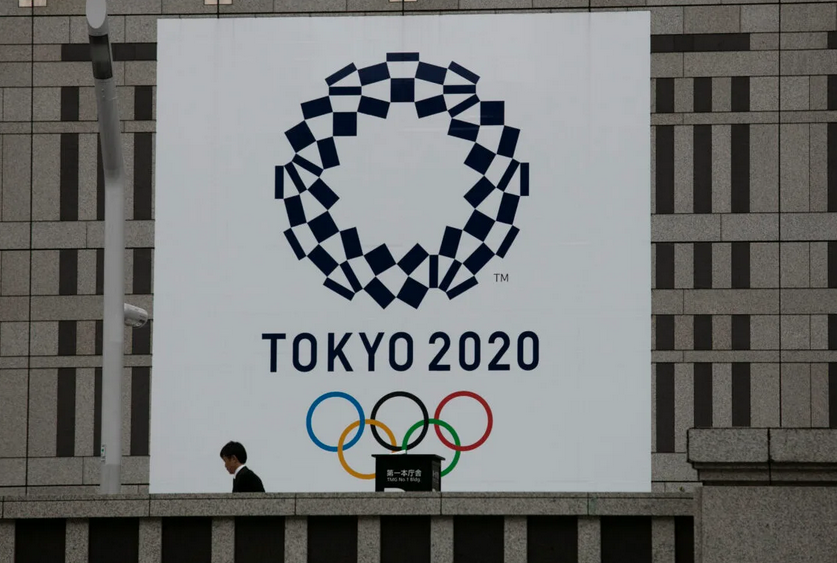JUDY WOODRUFF: Olympic history of a very different sort was made today, when Japan and the International Olympic Committee decided to postpone this summer's Games to 2021. John Yang looks at what drove that decision and the ramifications.
JOHN YANG: Judy, today's decision affects thousands of athletes around the world, and creates huge logistical headaches for organizers. Christine Brennan of USA Today has covered every Olympics Games, both Summer and Winter, since 1984. She joins us by Skype from Washington, D.C. Christine, how much of this decision was driven by the athletes' own concerns about their own health and welfare?
CHRISTINE BRENNAN, USA Today: John, all of it. This was stunning. When leaders don't lead, the athletes fill the void. And the International Olympic Committee president, Thomas Bach, is actually a former athlete, former Olympic gold medalist. One would have thought he would have understood the magnitude of the athletes' problems. He didn't. He sat in his ivory tower and kept saying, we're not talking about postponement. We're not talking about cancellation. The athletes took over. They started talking. I interviewed some, others did around the world. And their voices were heard. They couldn't train. Or, if they could train, if they could go and swim or run or whatever, they wondered if they were being good citizens, not just Americans, but athletes around the world. Shouldn't they be sheltering in place? Why are they out, and no one else is? Everything's being closed down upon them, yet they're trying to train for the most important event of their life just four months away. The athletes drove this decision. It wasn't about July 24, the opening ceremonies date. It was about right now. And the here and now really won the day, and the athletes' voices ended up being the voices that we listened to.
JOHN YANG: You say that this competition, for many of these athletes, are...for all of them, really, was the most...going to be the most important moment of their lives. Does this, for them, some of them, mean that their chances of medaling ever are diminished?

CHRISTINE BRENNAN: Yes, there are athletes who were who were targeting 2020, and that knew that, once July or August of 2020 was over, that their career was over. Some of them will stick around. I have talked to some already who say, absolutely, especially if it's a spring Olympics. We don't know yet. But if it's the spring of 2021, that's obviously less time than the summer. That's going to knock out some of the big names or the older athletes who were going to hang around for another four years, in this case, from 2016 to 2020. That's gone. And even though that might sound like a short period of time, for these athletes, elite athletes, at the peak of their game, where one fingernail is the difference between first and fourth place in a swimming pool, that's enough to probably end some careers.
JOHN YANG: And some of these athletes have delayed college, delayed careers to train?
CHRISTINE BRENNAN: Oh, they have. And for every one who makes a lot of money, like Michael Phelps, or Katie Ledecky, or Simone Biles, there are those who are just scraping by. And this has been their dream and their hope.
JOHN YANG: Give us some historical perspective. Have the Olympic Games ever been disrupted in this sort of way?
CHRISTINE BRENNAN: This is unprecedented, John. Never before have we seen anything like this. There have been cancellations, World War I and World War II, but that's it. Other than that, there have been boycotts, and those were political in nature. The 1976, 1980, and 1984 Summer Olympics were affected by boycotts. But those Games went on as planned. So, the idea of a postponement is something the likes of which we have never seen, which is why the undertaking is so dramatic for the athletes and also for the Tokyo organizers.
JOHN YANG: For the Tokyo organizers, how easy is it to just move this a year? Are there worries about venues being available, hotel rooms being available, other competitions interfering?
CHRISTINE BRENNAN: All of the above. It's not like postponing an NBA season or an NHL season or stopping something, even the NCAA men's and women's basketball tournaments. This is the biggest regularly scheduled event and gathering of the world, the Olympic Games. And so, yes, the hotel rooms, obviously, tickets sold, infrastructure. There are 10 venues, John, that are supposed to be temporary, which means, once August 9 happened, and then the Paralympic Games after that, so, into September, they would be moved, taken down, whatever. What's going to happen with those venues? My sense is, civic pride will win the day, and we will see Tokyo rise, just like probably any other big city would, to pull this off.
JOHN YANG: Christine Brennan of USA Today, thank you very much.
CHRISTINE BRENNAN: John, my pleasure. Thank you.
JUDY WOODRUFF: And thank you to Christine and John.













